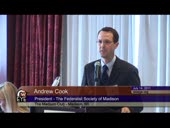Singing a September School-Start Song
Thursday will be the first day of the new school year for the vast majority of public school students in Wisconsin. Why? Because that’s the law. No, not that school start on a Thursday, but that it not start earlier than September 1. And why is that? Because tourism industry leaders lobbied so hard for it.
In fact, when the law went through the legislature in the late 1990s, it was handled in the tourism committees of the Assembly and Senate, and not in the education committees, even though the subject was school calendars. I’ve always thought that said something about priorities in Wisconsin.
School opening dates in many districts had moved up over the years into late August. This was a problem, in the eyes of those in the tourism business. They said they wanted kids and parents to have the maximum opportunity to take vacations that build healthy family bonds and life-long memories. (As the song from Man of La Mancha put it, I’m only thinking of him.) Let’s assume they also wanted to maximize their summer season and hold on to their high school student employees longer.
So, since 2000, state law 118.045 has specified “no public school may commence the school term until September 1.” Athletic contests are exempted, as are in-service days for staff (which is why most teachers went back to work Tuesday or so). Schools on so-called year-round calendars (which mean they take shorter summer breaks but have the same total of school days) are exempt. And other schools that convince the state Department of Public Instruction there are “extraordinary reasons” may be granted exceptions. In Milwaukee, that includes several schools that have International Baccalaureate programs that call for starting in August. Private schools and higher-education institutions are not included in the law.


